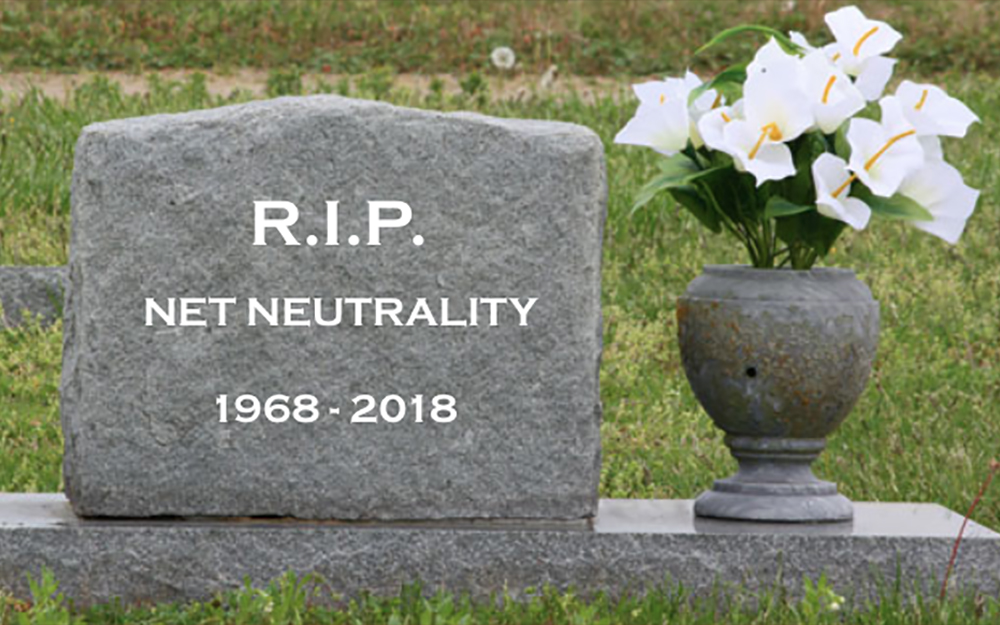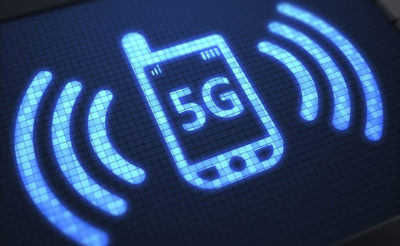
By Haddon Libby
On Monday, June 11th the Federal Communications Commission rescinded net neutrality legislation passed toward the end of the Obama Administration.
Since its passage in late 2015, net neutrality has been rejoiced by Democrats and scorned by Republicans. Originally it was thought that the legislation would keep Internet Service Providers (ISPs) like AT&T, Verizon and Comcast from interfering with the speed or content available to you when online.
In truth, the issue is far more complicated and far reaching than this simplistic argument.
Companies on the side of net neutrality are its biggest beneficiaries – Netflix, Facebook, Amazon, Google and Apple. Meanwhile, the ISPs felt that this legislation was unfair to them as it meant that they were forced to subsidize the largest users like Netflix while causing non-Netflix user’s connectivity problems because the peak Netflix usage times often overwhelm ISP networks causing all users to suffer. As the ISPs have to spend billions annually to keep their networks functioning at current levels, large data hogs like Netflix were essentially benefitting inordinately from the efforts of other business without compensation. Additionally, hoggish data users were slowing the roll-out of 5G as the legislation served to suppress competition.
It is a national priority to roll-out 5G if we want a robust economy in the future. This means that the cellular ISPs like AT&T and T-Mobile will have to add hundreds of small, lower frequency cell towers in the area where one taller tower can provide 4G. Using Boston as an example, Verizon (which offers Fios) will spend $5 billion just for the glass fiber optic cables necessary to wire that one town.
New 5G technology will make our current broadband cable connections the equivalent to the dial-in technology of 20 years ago. 5G will allow for the deployment of driverless cars. It will allow the use of Artificial Intelligence throughout society thus making productivity higher and mundane tasks fewer. It will change online game play in ways few can comprehend. It will help business and consumers better transition to cloud computing making expensive computers unnecessary. Generally, 5G will change the way that we interact with the world around us.
 5G transfers data at a peak rate of 20 gigabytes a second. For comparison, the highest rates for most of the Coachella Valley are between 40 to 50 megabytes per second. This means that 5G is more than 400 times faster than what we have now with far fewer connectivity problems. If cars are going to operate without a driver, the current speed of ISP networks are inadequate.
5G transfers data at a peak rate of 20 gigabytes a second. For comparison, the highest rates for most of the Coachella Valley are between 40 to 50 megabytes per second. This means that 5G is more than 400 times faster than what we have now with far fewer connectivity problems. If cars are going to operate without a driver, the current speed of ISP networks are inadequate.
The end of net neutrality means that 5G is near.
Besides cutting edge technology like 5G, many companies like Google and Facebook are looking at the delivery of free or heavily subsidized internet via satellite. They do not do this to be nice – they want to harvest your data for their business purposes.
Low coverage areas like ours where most of us have only one ISP choice of questionable reliability can expect competition in the next few years. As underground fiber optic cable will still be prohibitively expensive, we can expect to benefit from satellite ISPs and cellular ISPs first. The highest quality fiber optic ISPs will be limited to education and research centers due to prohibitive costs.
While some lament the loss of the FCC as the regulator over broadband, regulation continues via the Federal Trade Commission which will regulate the ISPs. If an ISP engages in anti-competitive behavior, there will be serious penalties. While that may be a penalty no worse than what any of the banks experienced after the Great Recession, the rules are on the books if an Administration or Agency wish to enforce them.
The end of net neutrality is our clearest signal yet that the Internet of Things will come to your neighborhood in the not too distant future.
Haddon Libby is the Founder and Managing Partner of Winslow Drake Investment Management. For more information, please visit www.WinslowDrake.com or email HLibby@WinslowDrake.com.










































